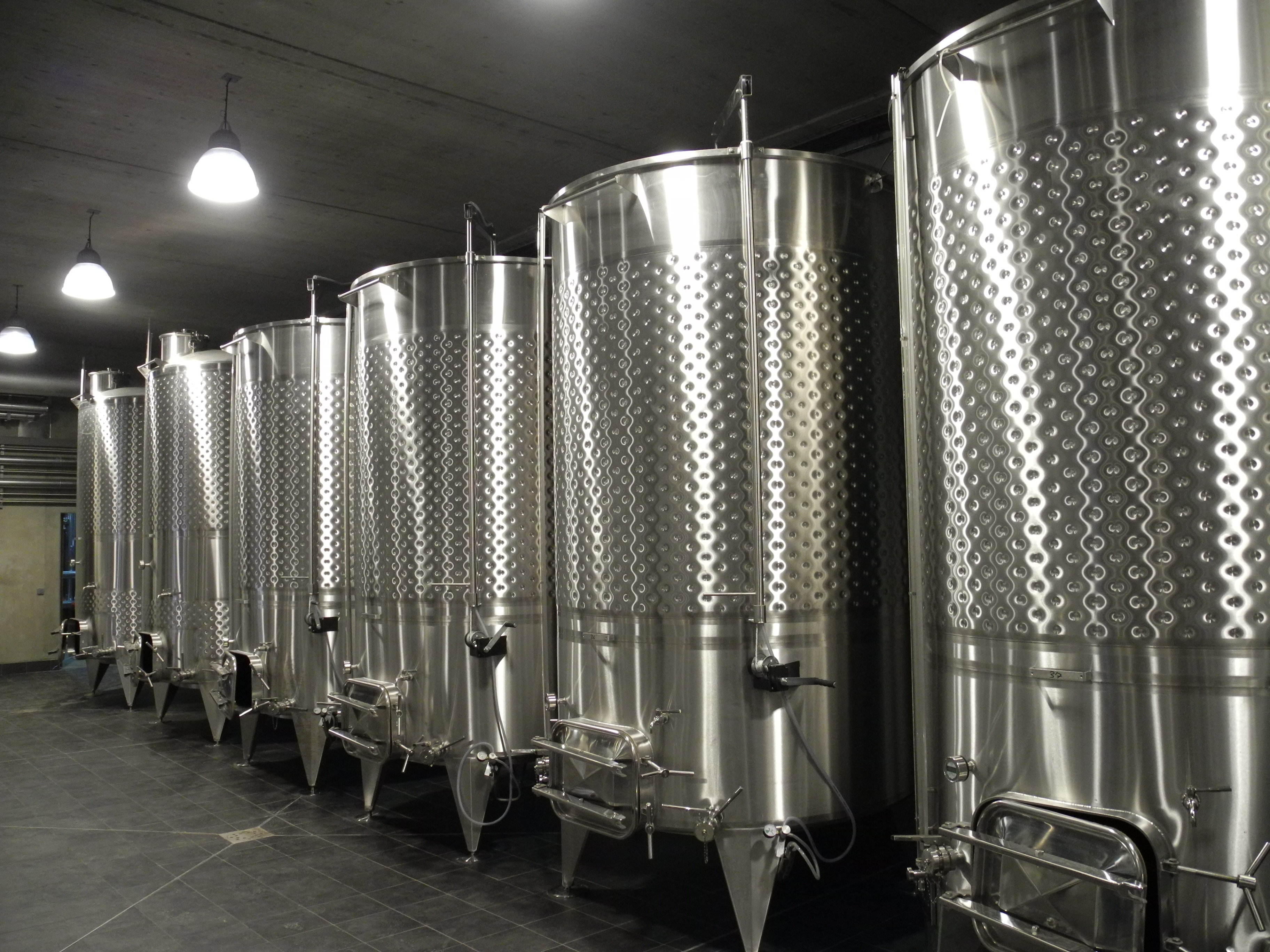Red wines
Vineyards dedicated to producing red or rosé wines cover 35 hectares planted to Syrah, Grenache noir, Mourvèdre, Carignan and Marselan.
Viticultural techniques comply with specifications for organic farming: no chemical weed killers but rather mechanical soil tillage (French plough, forking, hilling…) and sulphur-based or Bordeaux mixture sprays.
The grapes are harvested either by hand in small perforated crates containing a maximum 25kg, or by machine in small stainless steel containers that can be conveyed to the top of the tanks.
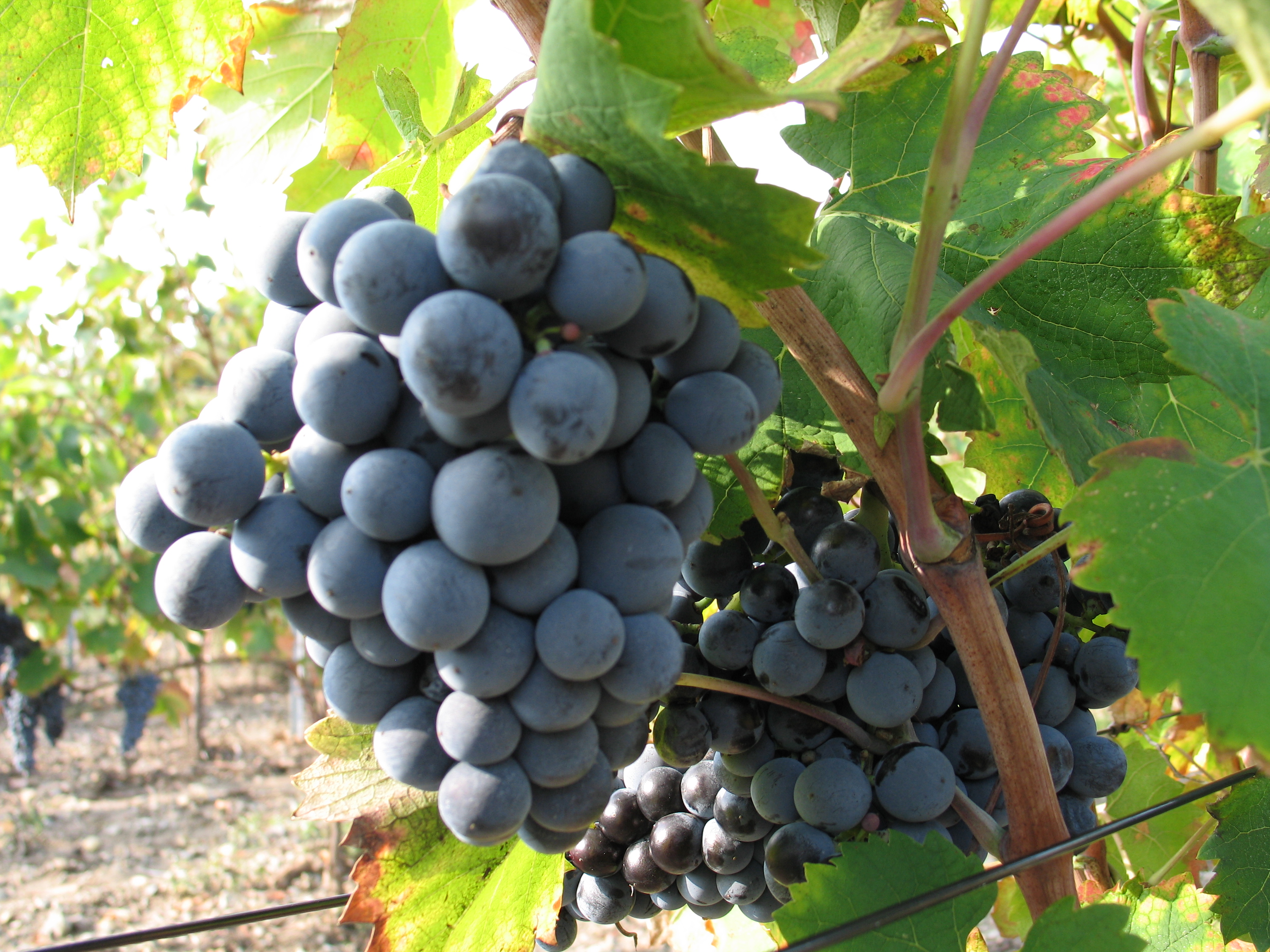
Grape processing
- Hand harvesting:
After sometimes spending time in cold storage, the crates of fruit are tipped directly by hand into a destemming machine to remove the stalks. As the fruit exits the machine, it enters a sorting table to remove the slightest plant debris. - Machine harvesting:
Our grape harvester is fitted with a destemming machine and mechanical sorting table. The crop thus enters the winery quickly and in perfect condition. This type of harvesting allows us to intervene rapidly or to wait for the peak of ripeness, allowing us to work by night to benefit from cool temperatures and thereby preserve aroma whilst saving energy from refrigeration.
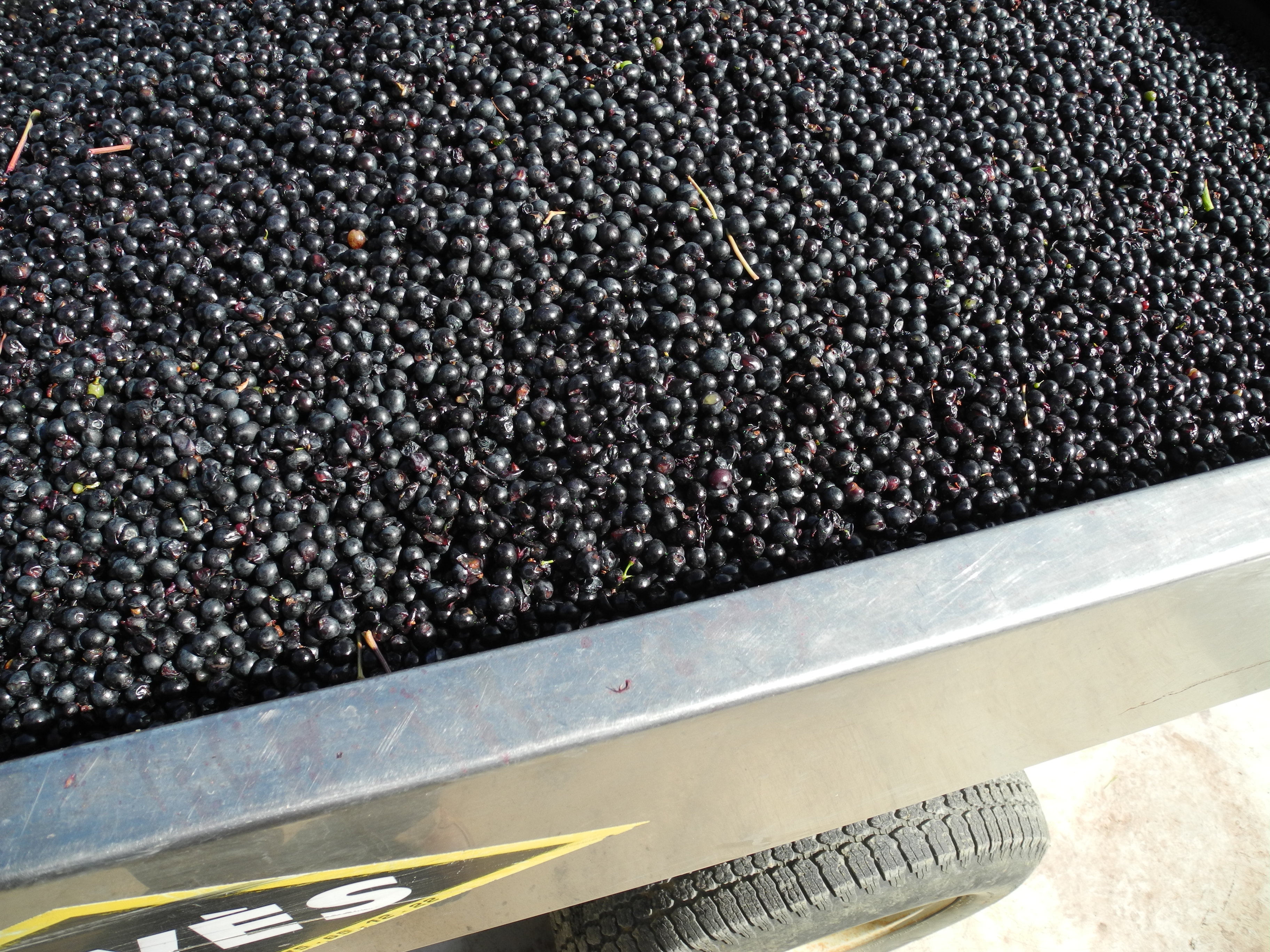
Winemaking
Once the grapes enter the winery, we add yeast so as to activate fermentation immediately, except for wines undergoing cold pre-fermentation soaking when the grapes are kept at cool temperatures for several days. Temperature and fermentation progress are checked on a daily basis. Pumping over is used depending on the required extraction levels.
The duration of vatting depends on the vintage and desired type of wine. After fermentation and maceration, the wine is run off and the press wine is separated. The wines then begin to mature in oak tanks.
- In the winter, we blend the various wines.
- In the spring, the supplest wines are prepared and then bottled.
The finest wines (Les Bugadelles) are matured for longer in oak tanks or casks. It isn’t hard to conjure up delicious images of these robust, liquoricy offerings coupled with meats in a sauce or marinated grilled meats.
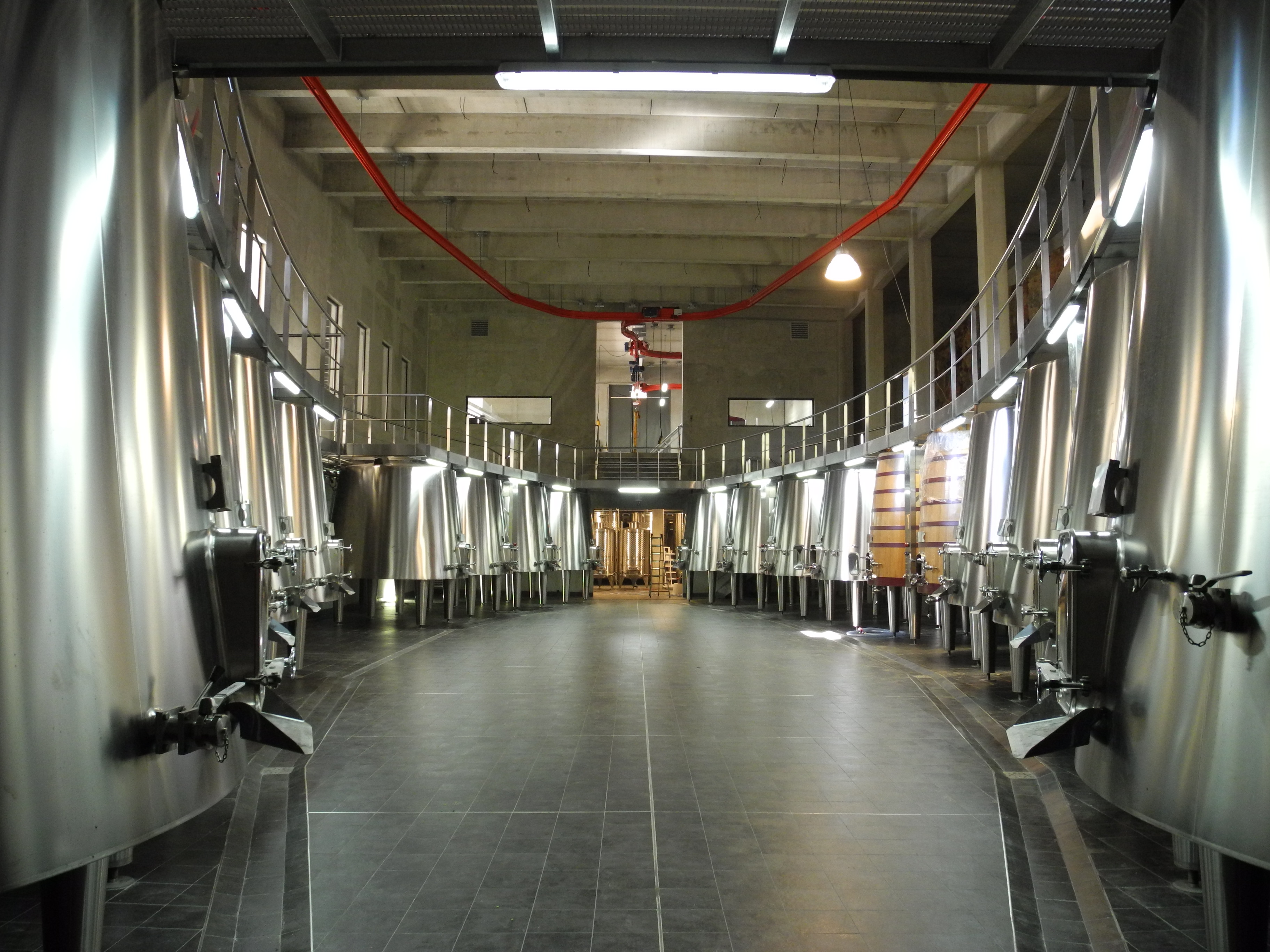
White wines
Production of a top Southern white wine requires excellence, from the planting of the vineyard right through to bottling. The most suitable land was selected and the varieties chosen were Grenache blanc, Roussanne and Viognier. They form the varietal range of the estate’s 5 hectares dedicated to producing white wines.
Viticultural techniques are identical to those for the red varieties, in terms of pruning method, density and soil management for instance. The grapes are harvested by hand in small crates which are immediately placed in cold storage, providing perfect protection of aroma. The grapes are then pressed directly using a pneumatic press and the juice is collected by gravity. After settling, fermentation occurs in casks and tanks.
These fruity, well-balanced wines are instantly compelling from the aperitif onwards, their long, elegant finish inviting you to serve yourself a second glass, particularly with fish from the nearby Mediterranean.
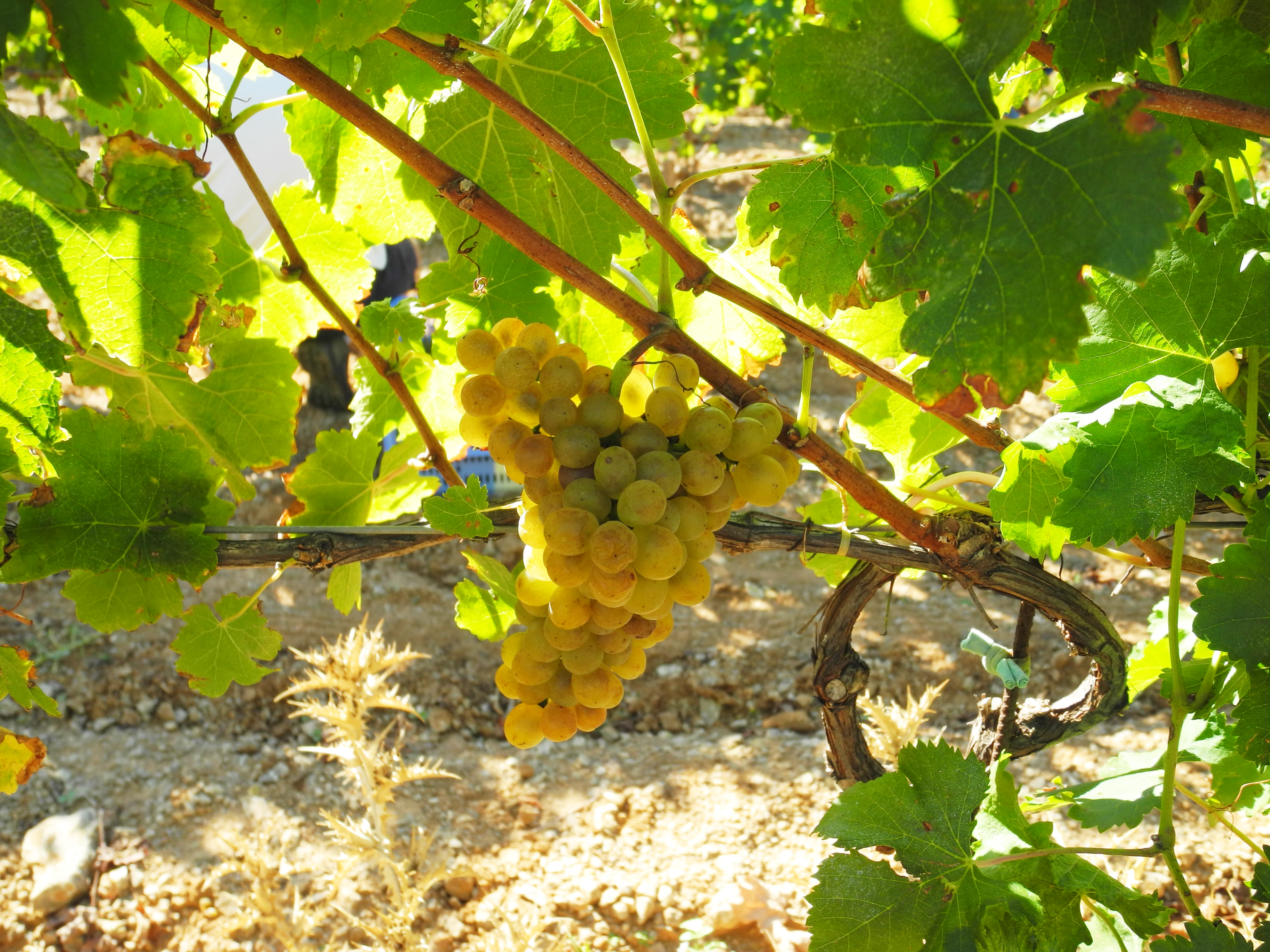
Rosés wines
The rosé wines are made from red varieties (Grenache, Syrah, Mourvèdre…) grown on predominantly limestone soils interspersed with sandstone, red clay, marl and schist. The influence of the Mediterranean, just 2km away as the crow flies, is highly significant with sea breezes in August bringing a salty coolness to the vineyards, thereby promoting aroma and finesse in the wines made from a predominant proportion of Grenache noir.
Viticultural techniques comply with specifications for organic farming, using mechanical tillage, short pruning (Cordon de Royat system) and a planting density of 4,000 vines per hectare.
The vineyard sites most suitable for producing rosés are selected mainly for the grape variety, vine age and production levels on the vine.
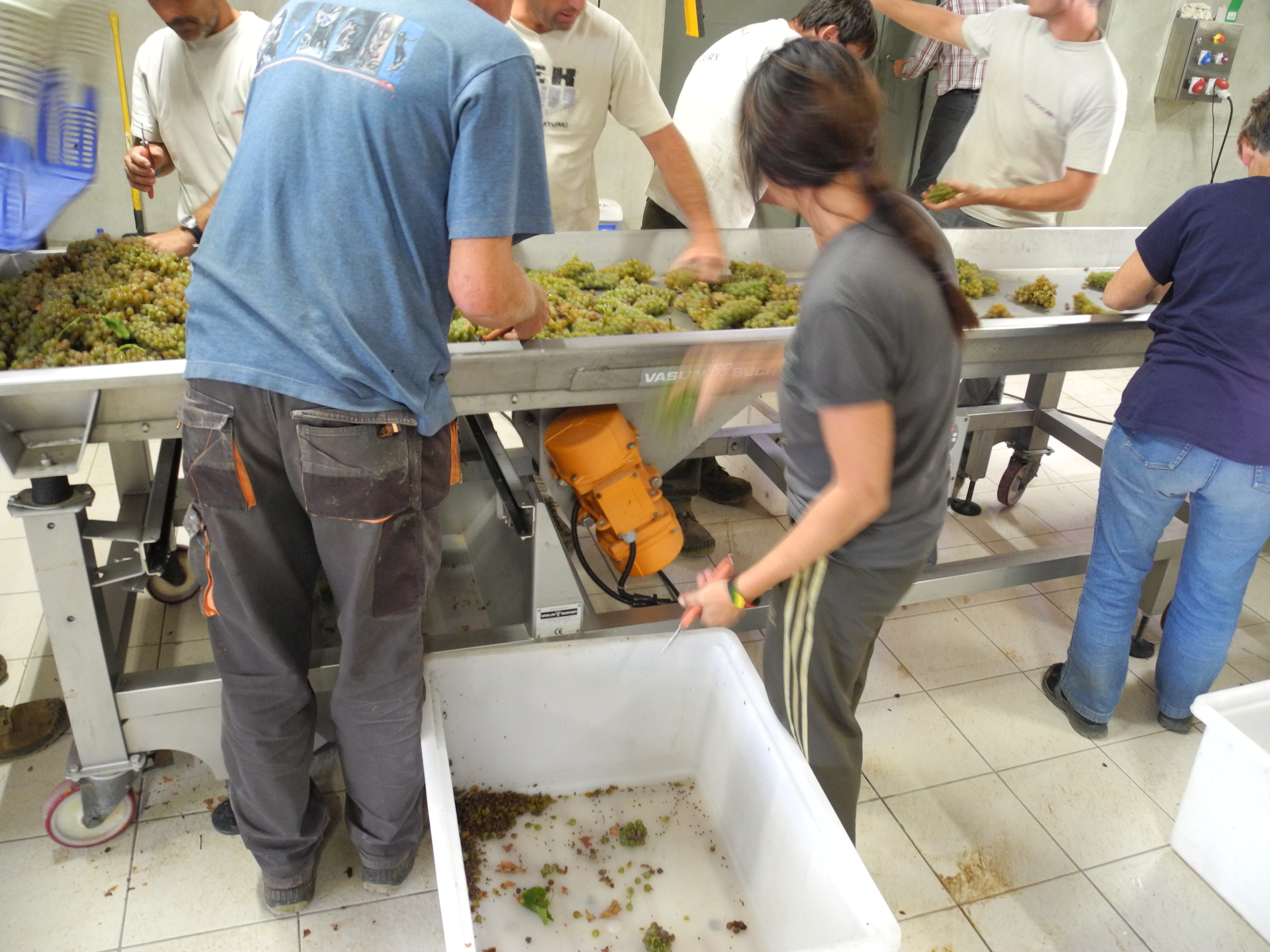
In the case of rosés, most of the crop is harvested by machine, with a sorting table, so that the grapes can picked quickly at the peak of ripeness and by night to benefit from cool temperatures, preserve aroma and avoid oxidation.
The grapes then go straight to the pneumatic press and the juice is collected by gravity. After cold settling, fermentation takes place in stainless steel tanks at low temperatures (16-17°C) followed by ageing on fine lees.
Bottled in the spring, Les Bugadelles rosé wines are refined and elegant and exude aromas of raspberry. They make the ideal companion for barbecues and summer evenings, remaining a symbol of our Mediterranean lifestyle all year round.
